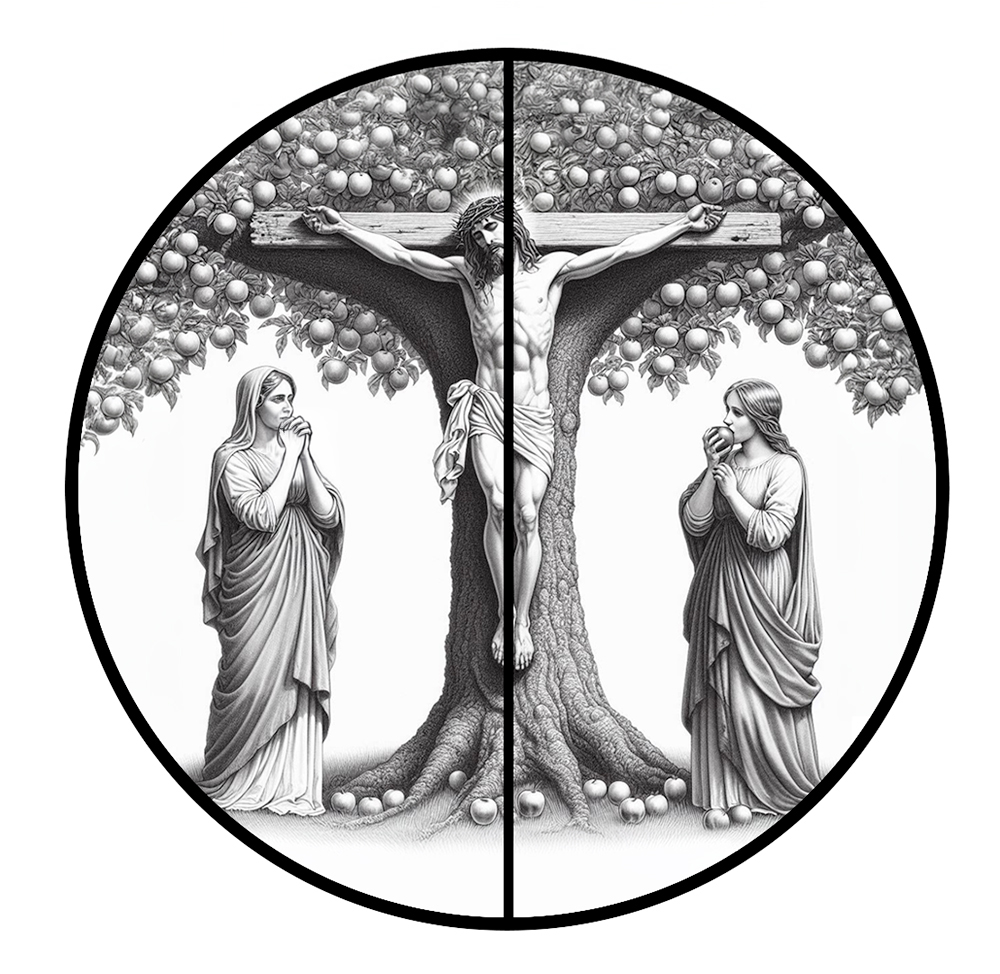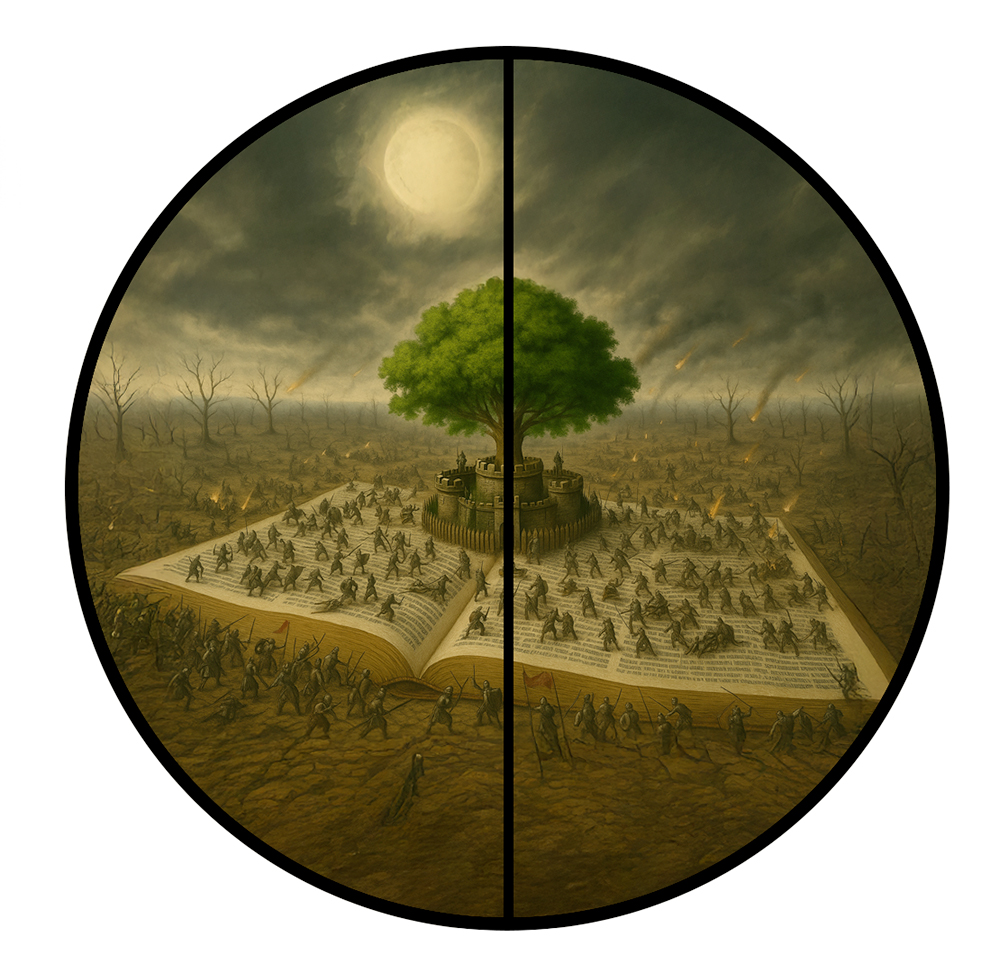 Genesis 3:3
Genesis 3:3

Bad Fruit: "Do not touch the Lord's Anointed!"
And from the fruit of the Tree who is within the Middle of the Protected-Garden mighty ones has said, You all are not eating from out of the manna of himself, and you all are not touching within himself, lest your inner selves die!"
"The Fathers of yourselves ate the manna within the desolate/lonesome one, and they died! This one is the bread loaf, the one from out of the Heavenly One, so that anyone can eat from out of himself, and not die!"
(John 6:49-50 RBT)
And from the fruit of the tree which is in the midst of the garden, God said, Ye shall not eat from it, and ye shall not touch upon it, lest ye shall die.
but of the fruit of the tree in the middle of the garden, God has said, You shall not eat of it, nor shall you touch it, lest you die.
but of the fruit of the tree which is in the midst of the garden, God said, Ye shall not eat of it, neither shall ye touch it, lest ye die.
Footnotes
| 111 | Genesis 3:3 The Paragogic Nun Suffix Hebrew תמתון "you" are dying. See study Paragogic Nun Suffix as Inner Self This suffix ון- is attached to about 300 verbs. The morphology of all of them have been interpreted in the plural—either second person or third person masculine plural. But its meaning is unknown (cf. Unfolding Hebrew's Paragogic Nun Suffix). This means it's pure conjecture from surrounding grammatical context. In Hebrew, the combination of a vav and a final nun ון- also forms a diminutive suffix for many nouns, such as "אישון" (ishon) This suffix is often used to denote smallness, affection, or endearment, similar to how "-ie" or "-y" might be used in English. In Psalms 17:8, "אישון עינך" (ishon einekha) has been interpreted as "little man of your eye" or "little one of your eye." Most know it as "the apple of your eye" to express endearment. It is also used in this way in Modern Hebrew. The problem we face here is that this suffix modifies the normal verb suffixes somehow. The normal known conjugation for "you all are dying" is תמתו (temutu) and not תמתון (temuton) This ending is also found in several feminine singular verbs. The normal Hebrew for "you are clinging" in the feminine singular is תדבקי (tadbeqi) and not תדבקין (tadbeqin) So why is the normal conjugation not used? Why are there some feminine singular verbs found with this ending but no masculine singular verbs ending with ון-? שבתון is another noun meaning sabbath/rest/stillness (Strongs #7677). Does it mean "the little still one"? Taken from the phrase שבת שבתון sabbath of sabbaton which is redundant, but according Exodus 16:23 where it first appears there is some rich meaning to be found: "And he is speaking toward themselves, 'He Is ("Yahweh") has spoken Himself straightly. The still one is a holy still one to He Is ("Yahweh"), tomorrow." What this suffix seems to denote is found in the difference between the eternal "Today" and the "today" within temporal constraint. That is "a today within Today." The "little man/apple of the eye" refers to the one who is in the middle of the eye of time, "a man within the Man", given that we understand the relationship of eternity and time as an "eye" with its circumference being the circuit of time. And based on this we can conjecture that the verb suffix has to do with "the man in the middle" or "the small self in the middle." Qal active, you are dying. niphal passive, being put to death. The Qal active and Niphal Passive verb forms are identical in the second person masculine plural form. See verb chart: Touch and Die?See note on Exodus 19:13—there the pronoun him is also used of the mountain, “No hand is touching within himself”. The order of the words of "no hand is touching within himself" is relevant: לא תגע בו יד lit. is not touching/being touched in himself a hand. This is the same order found in Genesis 3:3: לא תגעו בו פן lit. you are not touching/being touched in himself a corner. |